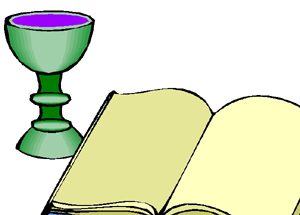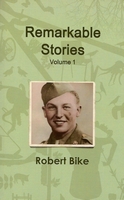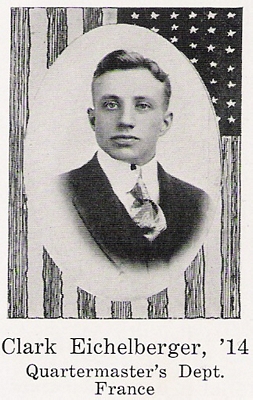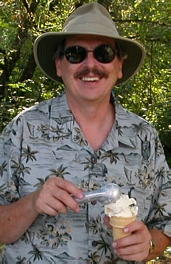
Robert
Bike
Licensed
Massage Therapy #5473
Eugene, Oregon
EFT-CC, EFT-ADV
Teaching Reiki Master
Life Coach
Gift Certificates
|
Reiki
Private classes. |
|
Member
OMTA & ABMP President of the Oregon Massage Therapists Association 2008-2010 & 2012-2013 |
|
I
graduated from Freeport (Illinois) High School. |
|
Please
help keep
this site free. Buy one of my books, on sale below. All sales go to help support this website. |
|
Remarkable
Stories, Remarkable
events have happened in Freeport and Stephenson County, Illinois,
and remarkable people have lived there. These are stories gathered
about people and events from 1835 through World War II. |
|
Biblical
Aromatherapy
by Robert Bike 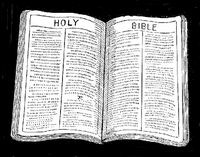
The Bible mentions about 232 plants by name, or closely enough to figure out what plant is meant. Of these, 24 are aromatic plants; that is, parts of the plants can be pressed or distilled to get an essential oil. Essential oils are the lifeblood of plants and have tremendous healing capabilities. The
healing power of plants is the basis for modern medicines.
Originally published in manuscript form in 1999, I completely revised the book and added illustrations. To order
Biblical Aromatherapy in paperback, List price $24.99; introductory offer $19.99 To order the pdf version and download to your computer or phone, The electronic version is only $2.99! |
Publicity!
|
Olga
Carlile, columnist for the Freeport (Illinois) Journal Standard,
featured this website in her column on January 19, 2007. |
|
Harriet
Gustason, another columnist for the Freeport Journal Standard,
has featured this website twice. Click to see pdf of articles:
June 29, 2012 November 3, 2012 |
|
"My
Life Purpose is to inspire my friends |
Robert Bike, LMT, LLC
The Class of 1914
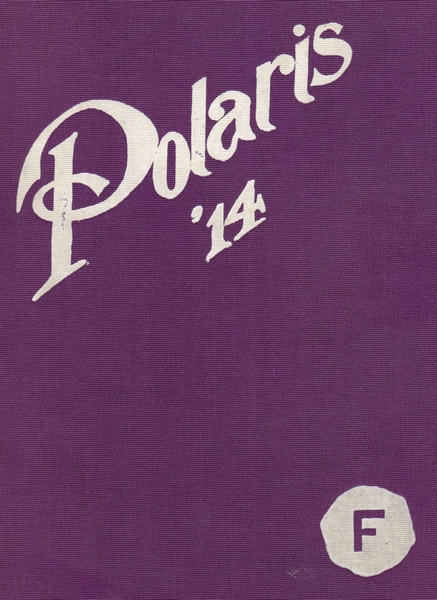
Frederick Ardern, Milo Atkins,
Margaret Backus, William Barnds, Katherine Barry, Mildred Best, Ruth Bissekumer, George Bonn, Caro Ruth Boos, Henry J. Brau, Marie Annie Britt, Raymond Britt,
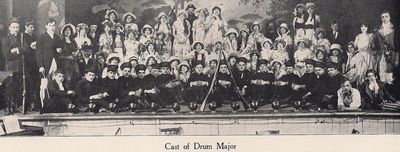 Clifford
Daniels, Vernie Decknadel, Julia Demeter, Raymond De Voe, Homer Dietmeier,
Morrell Ditzler, Margaret Marie Donahue, Paul Donahue,
Clifford
Daniels, Vernie Decknadel, Julia Demeter, Raymond De Voe, Homer Dietmeier,
Morrell Ditzler, Margaret Marie Donahue, Paul Donahue,
William S. Edmunson, Clark Eichelberger, Myrtle Idalia Everts,
John Fair, Francis Farnum, Frank Fisher,
Coryl Gilbert, Esther Guensler, Charles Marvin Guhl,
John Hart, Mildred Hawley, James Hea, Merrill Hoefer, Ruth Hurd,
Paul Blecker Irwin,
Fred Jansen,
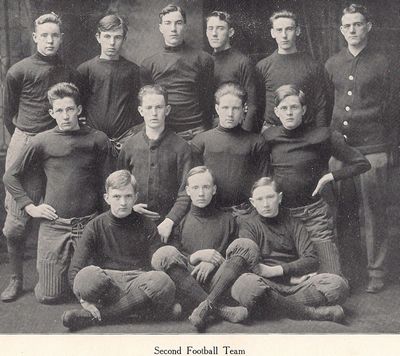 Hazel
Kaiser, Raymond Karcher, Muriel D'Orville Kettle, Julia Kathryn Kirchhefer,
Helen Vashti Knauff, Florence M. Koenig, Edwin C. Krape, Bessie Belle
Kyler,
Hazel
Kaiser, Raymond Karcher, Muriel D'Orville Kettle, Julia Kathryn Kirchhefer,
Helen Vashti Knauff, Florence M. Koenig, Edwin C. Krape, Bessie Belle
Kyler,
Maylou Ludwig, Helen Gratia Luebbing, Elmer Loemker,
Charles Markel,
Ruth Elizabeth Nagle, Guy Nesemeier, Lillian Ellen Newmiller,
Helen Lucinda Oblander,
Hilda Parks, E. Robert Pfeil, Marie Louise Place, Esther Acelia Powell, Myrtle N. Prall,
Wilbur Thomas Rawleigh, Lillian Resh, George Rawleigh Rideout, Raymond Ronald Ridgway, Grace Rigney, Martha Ruth Rinderman, Ruth Marie Ritzman, Pauline K. Rotzler, Margaret Russell,
Lewis J. Schwartz, Walter Shook, Beulah Louise Stewart, Harry E. Stewart, Vineta Margaret Strate, Gertrude Charlotte Strohacker,
Beatrice Belle Thomas, Harriet Thomas, Ethol Thompson, Donald O. Thoren, Irene Thoren,
Mildred Jeanette Voight,
Gladys Marie Welch, Catherine Lilah Wells, Marjorie Leone Weir, Leonard Stuart Wernicke, Frank Wicks, Fairie Wieman, Wilma Wolford,
Ford Zartman.
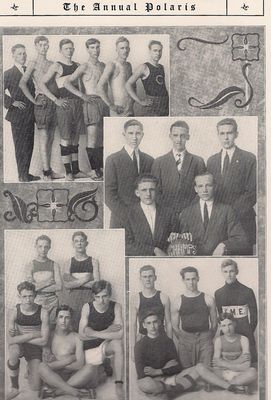 The
Freeport High School basketball team of 1914 finished second in the state
of Illinois. The final record was 17 wins, and only one loss.
The
Freeport High School basketball team of 1914 finished second in the state
of Illinois. The final record was 17 wins, and only one loss.
1914
Quarterfinals Scores
Evanston 49, Galesburg 23
Hillsboro 43, Granite City 40
Normal 29, Peoria Manual 27
Freeport 33, Centralia 30
Semifinals Scores
Hillsboro 37, Evanston 31
Freeport 32, Normal 20
Third
Place
Normal 31, Evanston 23
Final
Hillsboro 42, Freeport 19
Freeport was coached by Dan Daugherty.
Leo
Koehler scored 34 points in the three games, while Torrey Foy scored 26.
Leo Koehler, a 5-8 Junior, made the All-Tournament Team.
World War I Veterans from the Class of 1914
Frederick Ardern served in a machine gun battalion.
Milo Atkins was a private doing clerical work.
Sergeant William Barnds served in France.
Sergeant Henry J. Brau served from May 1918 to March 1919.
Sergeant Clifford Daniels served in the Medical Department at Fort Rodman in New Bedford, Massachusetts.
Homer Dietmeier was in training at Municipal Pier Medical School.
William S. Edmunson served in the Sunset Division, topography.
Clark Eichelberger served in the Quartermaster's Department in France. He later wrote that he spent the entire war unloading boxcars!
Marvin Guhl served as a First Class Gunner in the regular army from May 1917 to January 1919.
John Hart was inducted into the infantry.
Lieutenant James Hea was stationed in New York City. Merrill Hoefer was a Chief Petty Officer at Newport, Rhode Island.
Fred Jansen was a Chief Yeoman and Insurance Officer in the navy.
Edwin Krape served in the Hospital Division of the navy at Camp Dewey from July 1918 to February 1919.
Myrtle Prall was a Yeowoman at Newport, Rhode Island.
W. T. Rawleigh Jr., served at the Great Lakes naval Training Station. He died from Spanish Influenza.
Lieutenant George Rideout served in the Aviation Corps in San Antonio, Texas.
Harry E. Stewart served as Paymaster and Supply Officer aboard the N.N.S. "Western Maid" based at Baltimore, Maryland.
Ethol Thompson served in the U.S. Naval Band from 1917 to 1919. He was a musician.
Donald O. Thoren was a Private in Company G, 48th Infantry. He served from June 1, 1918 to March 7, 1919.
Ford Zartman served with the Harvard Ambulance Corps in France.
Clark Eichelberger
Not as famous as Spencer Tracy, not as revered locally as Jane Addams, almost unknown now in Freeport, Clark Eichelberger has had more impact on our lives than any other Freeporter.
After graduation from Freeport High School in 1914, Clark Eichelberger went to Northwestern University. When America joined the war effort, he joined the army. He served in France, mostly unloading boxcars. But the war had a profound impact on his life. He did not return to the University after the war, instead working in New York.
In 1928, Clark Eichelberger was appointed director of the Chicago branch of the League of Nations Associations, and in 1934 he became the director of the national organization in New York, a position he stayed at as executive director until 1964. His younger brother, Herbert Eichelberger, Advertising Manager for the 1919 Polaris and a 1919 graduate of Freeport High School, was a field secretary in the Midwest Office of the League of Nations Association.
So why this broad claim that Clark Eichelberger had such a large impact on our lives? Here is what I have learned about Clark Eichelberger. I bolded some of the highlights.
After his experience in the war, and looking at the formation, structure and organization of the League of Nations, he envisioned a world government, and using his associations, Clark Eichelberger worked to convince world leaders to form the United Nations.
He served as consultant to the League of Nations Secretariat, to the United States Delegation to the San Francisco Conference in 1945 that led to the formation of the United Nations, and Clark Eichelberger was a member of the committee which created the first working draft of the Charter of the United Nations. He also authored several books about the United Nations.
Clark Eichelberger was the director of the commission that led to the formation of the United Nations. Clark Eichelberger had a close connection with the White House, the Roosevelts and Truman. Clark Eichelberger was one of the most famous and influential peace activists of the 20th century.
From an Oral History Interview with Donald C. Blaisdell Divisional assistant, assistant division chief, associate division chief, U.S. Department of State, 1941-47; special assistant, Bureau of U.N. Affairs, 1947-51; U.S. Representative for International Organization Affairs, Geneva, Switzerland, 1951-53: "(In 1935) Clark M. Eichelberger was trying to promote the same kind of adult education among the farmers and the rural people and in the Midwest generally, that Mr. Wilson was trying to promote among the constituency of the Department of Agriculture. . . . my association with Clark Eichelberger and the various organizational activities that he was involved in one way or another to get the United States to accept what he thought was its fair share of maintaining the peace. This he saw through some kind of a worldwide organization, comparable to the League of Nations from the First World War and, of course, anticipating the United Nations after World War II. One of the organizational efforts that he made was in 1939, just at the time of the outbreak of war, setting up the Committee to Defend America by Aiding the Allies. . . .Clark Eichelberger was known in the State Department. He was known by the Secretary of State. He was known by various of the assistants that Cordell Hull had in his immediate office. . . . Clark Eichelberger was invited to visit the U. K. in late summer of 1941. His travel expenses were covered by the British government and the American Embassy arranged for him to stay in a first class room at the Savoy Hotel in London. While there, he was able to confer with members of British organizations that paralleled the commission and the League of Nations Association. Eichelberger attended a meeting of the British Research Subcommittee on International Organization on 20 September. Historian Arnold Toynbee was one of the more vocal members of this group and Eichelberger noted afterward that their ideas were very similar. . . . On July 30, 1945 [a week before the atomic attacks on Hiroshima and Nagasaki] President Truman wrote to Clark Eichelberger, President of the American Association for the United Nations and explained in some detail how it would remain incumbent on the people of the United States through their awareness and mobilization to ensure the full implementation of the UN charter over the course of years."
London in 1941 was at war. The U.S. was attacked in December. Winston Churchill was the Prime Minister. On September 12, 1941, Winston Churchill had a luncheon meeting with Clark Eichelberger.
From
"Quincy Wright and the Commission to Study the Organization of Peace"
by Robert
Hillmann: "In the late 1930s, as it became apparent that the
world was once again about to experience war on a global scale, a small
group of people in the United States and Great Britain viewed this event
as an opportunity to create a world government. They referred to this
global system as the New World Order. . . . Clark Eichelberger met
with the President on more than eight occasions to discuss the organization's
work on behalf of world government. At two of these meetings, Eichelberger
reported that he personally handed F.D.R. copies of commission reports
outlining their ideas of what this new world order should look like. Eleanor
Roosevelt agreed so completely with the ideas and goals of the commission
that she eventually became a member. . . . In 1949, John Foster Dulles
remarked, '. . . that the Commission to Study the Organization of Peace
made an indispensable contribution to the creation of the United Nations.'
The commission's influence on the soon-to-be-created UN is beyond question.
The four individuals most responsible for the formation of the commission
were: James T. Shotwell, Quincy Wright, Clark Eichelberger, and
Clyde Eagleton."
From Time Magazine, Monday, Aug. 19, 1940: "As public sentiment mounted by stages, so William Allen White was drafted by stages to take an active part in converting opinion into action. When the Congressional debate on repeal of the Neutrality Act was at its height, his old friend Clark Eichelberger, director of The League of Nations Association, called him from Manhattan, asked him to head a committee to advocate repeal of the embargo. Editor White steadfastly refused, but Eichelberger induced other friends to press him, and White finally made several speeches. In Emporia when repeal was certain, he received a two-word telegram from Franklin Roosevelt: 'Thanks, Bill.' "
From The Atomic Bomb and the Origins of the Cold War by Martin J. Sherwin: "It can be argued that Roosevelt, the political pragmatist, renewed the wartime atomic-energy partnership to keep relations with the British harmonious rather than disrupt them on the basis of a postwar issue. Indeed it seems logical that the president took this consideration into account. But it must also be recognized that he was perfectly comfortable with the concept Churchill advocated—that military power was a prerequisite to successful postwar diplomacy. As early as August 1941, during the Atlantic Conference, Roosevelt had rejected the idea that an effective international organization could be relied upon to keep the peace; an Anglo-American international police force would be far more effective, he told Churchill. By the spring of 1942 the concept had broadened: the two policemen became four, and the idea was added that every other nation would be totally disarmed. 'The Four Policemen would have to build up a reservoir of force so powerful that no aggressor would dare to challenge it,' Roosevelt told Arthur Sweetser, an ardent internationalist. Violators first would be quarantined, and, if they persisted in their disruptive activities, bombed at the rate of a city a day until they agreed to behave. The president told Molotov about this idea in May, and in November he repeated it to Clark Eichelberger, who was coordinating the activities of the American internationalists. A year later, at the Teheran Conference, Roosevelt again discussed his idea, this time with Stalin. As Robert A. Divine has noted: "Roosevelt's concept of big power domination remained the central idea in his approach to international organization throughout World War II." Precisely how Roosevelt expected to integrate the atomic bomb into his plans for keeping the peace in the postwar world is not clear.
From
Reinventing
Government: Fast Bullets and Culture Changes by Robert P. Hillmann
"The Commission to Study the Organization of Peace was set up to
serve as a sort of unofficial Enquiry similar to the one that James T.
Shotwell participated in during and after World War I. Its main goal was
to plan the organization of international society following war. Although
the commission's work was not officially sanctioned, it did operate with
the blessings of President Franklin Delano Roosevelt. Commission member
Clark Eichelberger was the contact man with the White House. He met
with Roosevelt on at least 10 occasions, giving him copies of commission
reports and updating him on their activities. According to commission
records Eleanor Roosevelt eventually became a member of the organization.
. . .In late December 1941 a new term, The United Nations, began to creep
in to the lexicon of globalization. . . . the term was coined by Roosevelt
himself on 29 December 1941 and was first used publicly on 01 January
1942 in a document called the Declaration by the United Nations. . . .
Regardless of what was stated in the document, Wright, Eichelberger,
Shotwell and the rest knew exactly what the President meant. Eichelberger
wrote: 'At the time of the adoption of the Joint Declaration by the United
Nations in January 1, 1942, there had been some who criticized the fact
that the Declaration said nothing about the form a future world organization
should take. However, it had seemed clear to us that President Roosevelt
was then simply not yet ready to spell out a structure that might be rejected
by an insufficiently prepared public.' . . . On 13 November 1942, five
days after Wallace gave his speech at Madison Square Garden, Clark Eichelberger
again met with President Roosevelt. According to Eichelberger, Roosevelt
immediately turned the topic of conversation to the United Nations and
his plans for the future. As their meeting was coming to close, Eichelberger
made reference to the possibility of him serving as President of United
Nations of the World. At first F.D.R. said that he would be too old for
such a job and that he planned to retire to Hyde Park to raise Christmas
trees but Eichelberger, pursuing the point a bit further, noted that,
'His mood suddenly changed. He said something like, well, perhaps for
two years.' "
From Eleanor: The Years Alone by Joseph P. Lasch, W. W. Norton,
1972: "What she really wanted to do was to make some contribution
to what had been Franklin's main wartime objective—the establishment
of machinery that would help ensure a lasting peace. . . . She had
kept Franklin informed of the work of Clark Eichelberger's Commission
to Study the Organization of Peace. . . . She was being proposed
for the Nobel Peace Prize, Clark Eichelberger of the American Association
for the United Nations informed her, but the French felt she and Cassin
should share the award."
From My Day by Eleanor Roosevelt, January 18, 1958: "I started
off for Raleigh, N. C., on Sunday and there met Clark Eichelberger
and Miss Patricia Baillargeon and spent from noon until Monday morning
at the state university in Chapel Hill. I knew this university first when
Dr. Frank Graham was its President, and I am always reminded of him when
I go there. It seems to me he left an indelible mark on the young people,
even though some of them there today may never have met him. The young
people had planned well for all our time with them which Mr. Eichelberger
called planned chaos."
Clark Eichelberger was the author of "United Nations & Human Rights" and many other books and articles, most about the United Nations. His collected works can be found online. Clark Mell Eichelberger was born in Freeport, Illinois, in 1896, the son of Joseph Elmer Eichelberger and Olive (Clark) Eichelberger, and graduated from Freeport High School in 1914. He died in 1980.
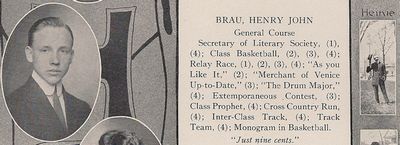 Jim
Brau wrote, asking about his grandfather, Henry Brau, pictured here.
Jim
Brau wrote, asking about his grandfather, Henry Brau, pictured here.
Henry played for the FHS track, the basketball and football teams, and served in the army during WWI.
Henry died of kidney failure at age 33, apparently due to the chemical 'purification' of swamp water at an army camp at Jacksonville, Florida.
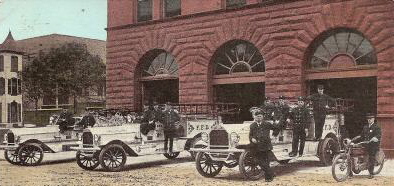
Fire Station #1, located in the north side of City Hall, from a card postmarked in 1914.
